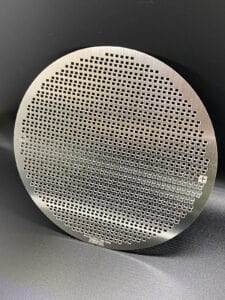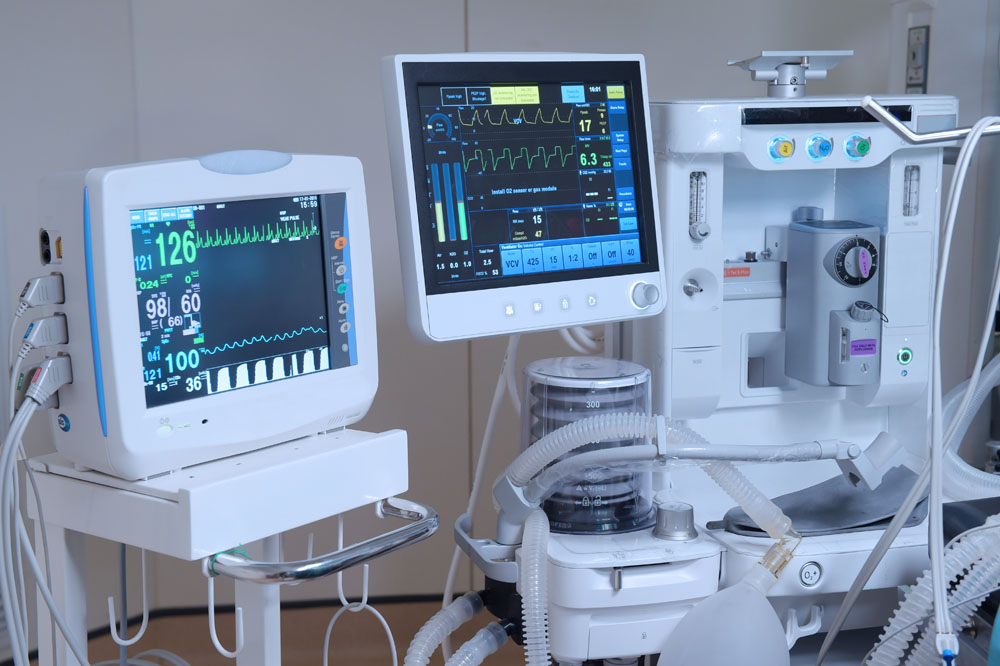Kovar Chemical Etching
Kovar is a Nickel-Cobalt ferrous alloy invented to meet the need for a reliable glass-to-metal seal required in electronic devices. Its temperature coefficient and thermal expansion characteristics are similar to borosilicate glass, and allow a tight mechanical joint between the two materials over a range of temperatures.
Acid etched Kovar finds application in glass-to-metal seals in scientific apparatus, and conductors entering glass envelopes of electronics parts such as vacuum tubes (valves), X-ray and microwave tubes, and some light bulbs.

Kovar Chemical Etching
Fotofab’s etching process produces designs that can withstand harsh indoor and outdoor environments. The process uses an acid (Ferric Chloride) to etch into unprotected parts of a metal surface to create a design or image formed to your project’s specifications. Contact us for more information on Acid Etch for Kovar today!
Characteristics of Kovar
Kovar is magnetic at any temperature under the Curie point (435°C or 815°F). Other characteristics include:
- Low thermal expansion
- Melting point of 1,450°C
- Thermal conductivity of 17.3 W/m • k
- Tensile strength of 75,000 psi
- Yield strength of 50,000 psi
Fotofab is committed to quality.






Kovar Chemical Etching Applications
Kovar is designed to have the same thermal expansion characteristics as boroscilicate glass to allow tight mechanical joint between the two materials over a wide temperature range. Common applications include:
- Metal parts bonded to hard glass envelopes
- Power tubes for electronics
- X-ray tubes for medical equipment
- Telecommunication components
Other Factors
- Has thermal expansion like glass and its nonlinear thermal expansion curve can often be made to match a glass, thus allowing the joint to tolerate a wide temperature range
- Chemical composition is controlled within narrow limits to assure precise uniform thermal expansion properties
- Kovar alloy is magnetic at all temperatures below the Curie point


